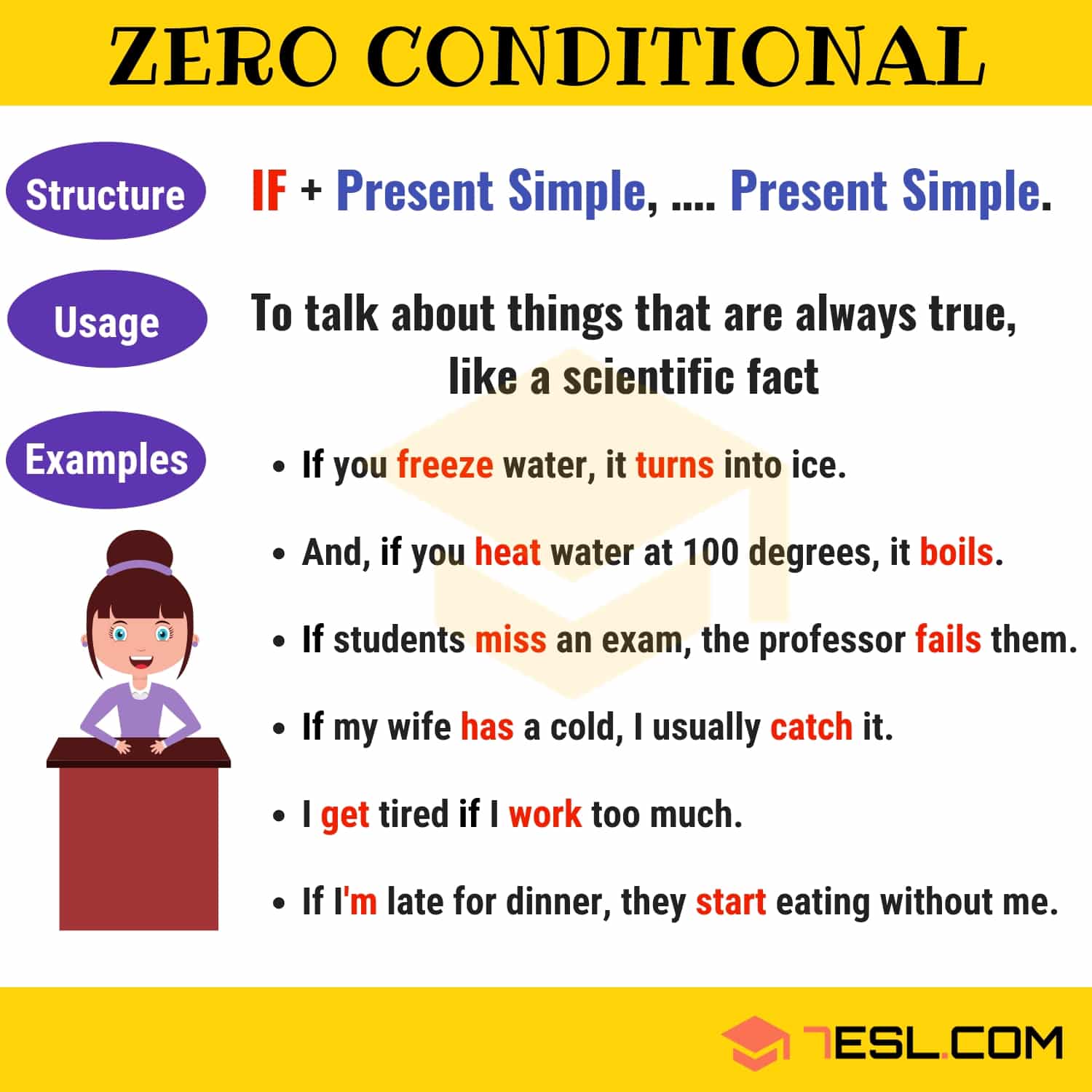The zero conditional is a sentence which is used to refer to a real situation or a general truth. For example, ‘If it is sunny, make sure you bring some sunscreen.’ These sentences are heard very often whilst using the English language and it is an essential part of broadening your understanding of English in general.
In this section, we are going to be looking at the zero conditional in much more detail, allowing you to get a good grasp on it and feel confident in using in in your spoken and written communications.
What Is the Zero Conditional?
Learn zero conditional (Present Real Conditional) definition and useful grammar rules to use the conditional sentence with examples and ESL worksheets.
Zero conditional is easy to form because all the verbs are in present tense. You just use two clauses, one with If + simple present verb and the other with another simple present verb:
If + Present Simple, …. Present Simple.
For example:
- If you freeze water, it turns into ice.
- And, if you heat water at 100 degrees, it boils.
- If students miss an exam, the professor fails them.
You can reverse the order of the clauses. If the “if” clause comes first, a comma is usually used. If the “if” clause comes second, there is no need for a comma.
For example:
- The professor fails students if they miss an exam.
- I get tired if I work too much.
We often use the imperative or the modal verb in the main clause when we give some advice or instructions.
For example:
- If I’m late for dinner, they start eating without me.
The ‘if‘ in this conditional can usually be replaced by ‘when‘ without changing the meaning.
For example:
- When people eat too much, they get fat. (= If people eat too much, they get fat.)
‘Unless‘ means the same as ‘if not‘.
For example:
- Unless he asks you politely, refuse to do any more work on the project. (= If he doesn’t ask you politely, refuse to do any more work on the project.)
How to Use the Zero Conditional?
The zero conditional is is used for actual facts, scientific events, things which are always true.
For example:
- If you heat ice, it melts.
- If you cross an international date line, the time changes.
- And, if public transport is efficient, people stop using their cars.
- If my wife has a cold, I usually catch it.
The Zero Conditional | Image









0 Comments